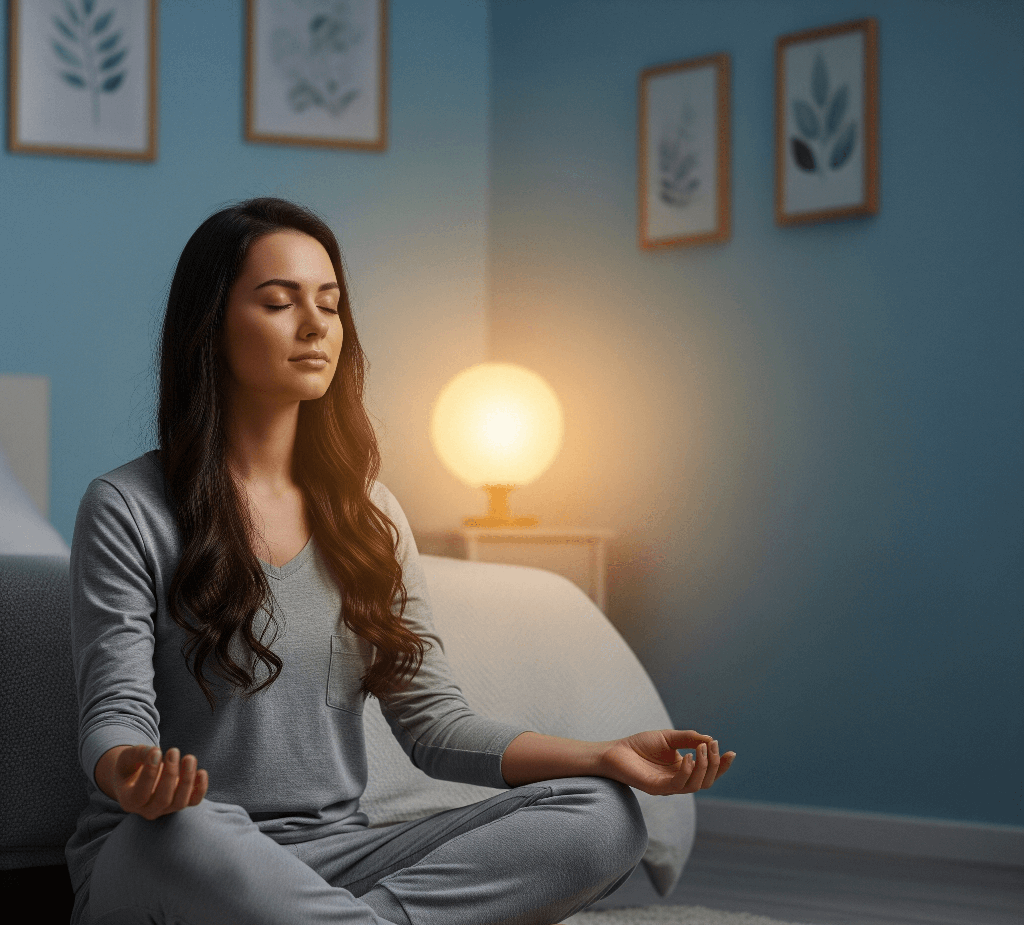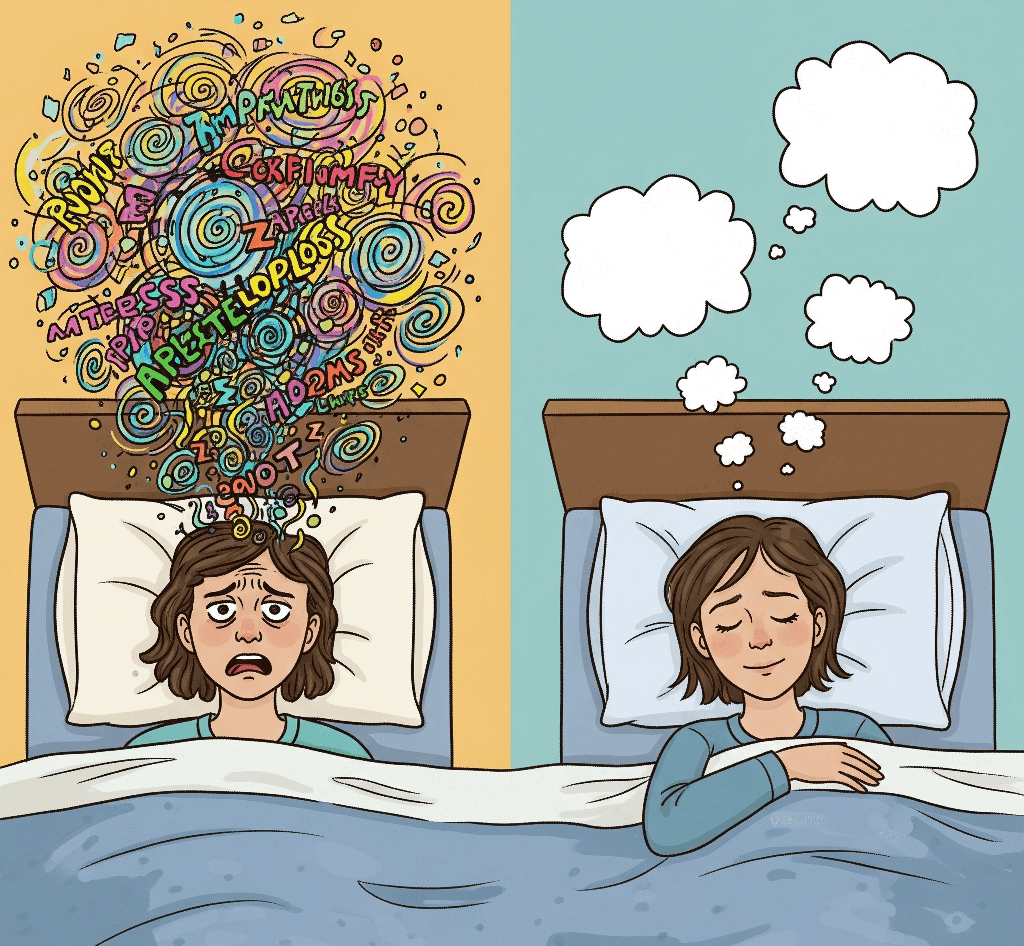Introduction: A Two-Way Street Between Sleep and Stress
We’ve all experienced it — a racing mind at 3 a.m., lying awake while tomorrow’s to-do list loops endlessly. Stress and sleep are closely intertwined, each influencing the other in powerful ways. When you’re stressed, sleep becomes elusive. When you’re sleep-deprived, stress becomes magnified. Understanding this interaction is crucial for reclaiming rest in a high-pressure world.
How Stress Disrupts Sleep
When you’re under stress, your body activates the sympathetic nervous system — your “fight or flight” response. This leads to elevated cortisol levels, increased heart rate, and hyper-alertness, all of which are enemies of restful sleep.
Common manifestations include:
Difficulty falling asleep (sleep onset insomnia)
Frequent night wakings
Restless sleep or nightmares
Early morning awakenings
Over time, chronic stress can lead to conditioned insomnia, where your body associates bedtime with anxiety rather than relaxation.
Sleep Deprivation Increases Stress Sensitivity
It’s a vicious cycle: poor sleep increases your sensitivity to stress. Research shows that even one night of fragmented sleep impairs the brain’s ability to regulate emotions, especially in the prefrontal cortex.
This can lead to:
Overreaction to minor frustrations
Reduced coping abilities
Heightened anxiety or low mood
Poor concentration and decision-making
Your body interprets sleep deprivation as a form of stress, which further activates the stress response — creating a feedback loop that’s hard to break.
Biological Mechanisms Behind the Connection
Cortisol Dysregulation: Normally, cortisol levels should drop in the evening to help you sleep. Chronic stress disrupts this rhythm, keeping cortisol high at night and impairing melatonin production.
Autonomic Nervous System Imbalance: High stress activates the sympathetic system, preventing the parasympathetic (“rest and digest”) system from helping you fall into deep sleep.
Inflammatory Response: Both stress and poor sleep increase systemic inflammation, which is linked to depression, fatigue, and even cardiovascular issues.
Practical Tips: Managing Stress for Better Sleep
You don’t need expensive solutions to improve the relationship between sleep and stress. Here are evidence-backed, natural methods to get started:
🧘 1. Practice Daily Relaxation Rituals
Short breathing exercises, meditation, or gentle yoga in the evening can shift your body out of stress mode.

📵 2. Create a Tech-Free Wind-Down Routine
Blue light and endless scrolling are stimulants. Set a digital curfew at least 1 hour before bed.
🌿 3. Try Adaptogens and Herbal Support
Natural herbs like ashwagandha, lemon balm, and chamomile can support stress reduction and relaxation.
📓 4. Journaling or Cognitive Behavioral Strategies
Writing down your worries before bed can help release mental tension. Cognitive Behavioral Therapy for Insomnia (CBT-I) is highly effective for stress-related sleep issues.
🕯️ 5. Build a Stable Sleep Schedule
Try to wake and sleep at consistent times, even on weekends. This supports your circadian rhythm and reduces sleep anxiety.
When to Seek Help
If stress and insomnia persist for several weeks or begin to interfere with your work, mood, or relationships, consider speaking with a healthcare professional. Persistent insomnia can be a symptom of anxiety or depression, both of which are treatable.
Conclusion: Reclaiming Calm Through Rest
Understanding how sleep and stress interact is the first step in breaking the cycle. With simple daily changes and an intentional approach to relaxation, you can support both your mental health and your sleep quality. Because good sleep isn’t just about rest — it’s a foundation for resilience in a stressful world.
